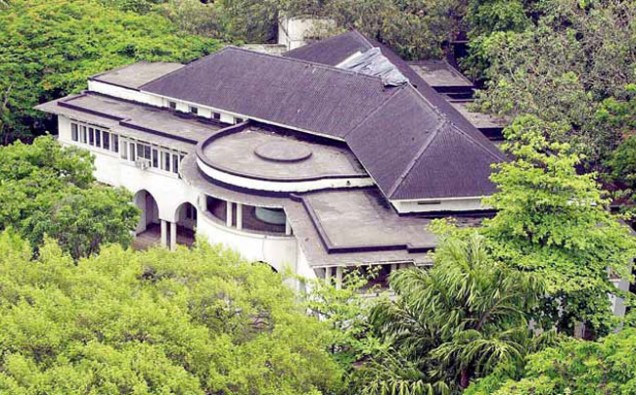Expressing concerns over the safety of Jinnah House, the erstwhile residence of Muhammad Ali Jinnah in Mumbai, Pakistan has asked India to protect the property after Bharatiya Janata Party (BJP) MLA Mangal Prabhat Lodha demanded the demolition of the house.
“Jinnah House in Mumbai was the residence with ownership of the father of the nation, Quaid-e-Azam Mohammad Ali Jinnah. Pakistan has repeatedly expressed its desire to take possession of the property.
The Government of India should respect the ownership rights of the Government of Pakistan in this regard,” Pakistan’s Foreign Office Spokesperson Nafees Zakaria said during a press conference.
“We also expect that Indian Government will fulfill its obligation of protecting that property and its upkeep,” he added.
Lodha has sought the construction of a cultural centre in place of Jinna House, but he maintains that the Jinnah House is a symbol of partition and it needs to be demolished.
Zakaria said Pakistan has already taken this issue with India authorities and it is an ongoing matter.“The property belongs to the Founder of Pakistan and should be given to Pakistan,” he said.
The BJP MLA said this after the Parliament passed the Enemy Property Act, Jinnah House became the property of the Indian government.
“I am struggling with this for the last 15 years. I have raised this issue twice in the Vidhan Sabha. Jinnah House is an enemy property. The Government of India should hand it over to the Maharashtra Government. The Maharashtra Government should establish a culture centre there which projects Maharashtra’s glory,” said Lodha
The Enemy Property Act of 1968, enacted after the India-Pakistan War three years earlier, gave the government the right to seize assets of people who had moved to Pakistan or China following wars with the two countries.
Those who left India for Pakistan were Muslims, and relations between the two countries remain fraught after numerous conflicts. Pakistan enacted a similar law at the time and seized properties of those who left for India.
The amended law, which would apply retrospectively, extends the definition of “enemy” to include legal heirs of declared enemies, even when the heir is an Indian citizen, or of a country not deemed to be an enemy.
“When the families are citizens of the country, how can the government consider them to be enemies and take away their right of succession?” said Husain Dalwai, a member of India’s upper house of parliament.
“It is against the constitution and it targets Pakistanis and Muslims unfairly,” he told the Thomson Reuters Foundation.
The government has said the amendments are in the “larger public interest” and will plug “loopholes to ensure that enemy properties worth thousands of crores (millions) of rupees do not revert to the enemy or enemy firm”.
The Supreme Court ruled in 2005 that legal heirs who are Indian citizens can reclaim so-called enemy property, following decades of petitioning by the family of the erstwhile Raja of Mahmudabad, who left India after partition in 1947.
But the amendment – also barring civil courts from hearing disputes related to enemy property – was passed by the upper house, despite a walkout by opposition members.
Large Muslim minority, which makes up 13 per cent of the population, lags the national average on land ownership, and faces bias when buying or renting properties.
The number of properties with the Custodian of Enemy Property has risen to about 16,000 from 2,100 a few years ago – nearly all taken from Muslim families – and are estimated at more than Rs 1 trillion ($15 billion).
“The idea of the bill seems to be to deprive Muslims of their right to ancestral property that the state seized,” said Anand Grover, a rights lawyer who argued the case before the Supreme Court.
“It’s anyone’s guess what will happen now,” he said.























